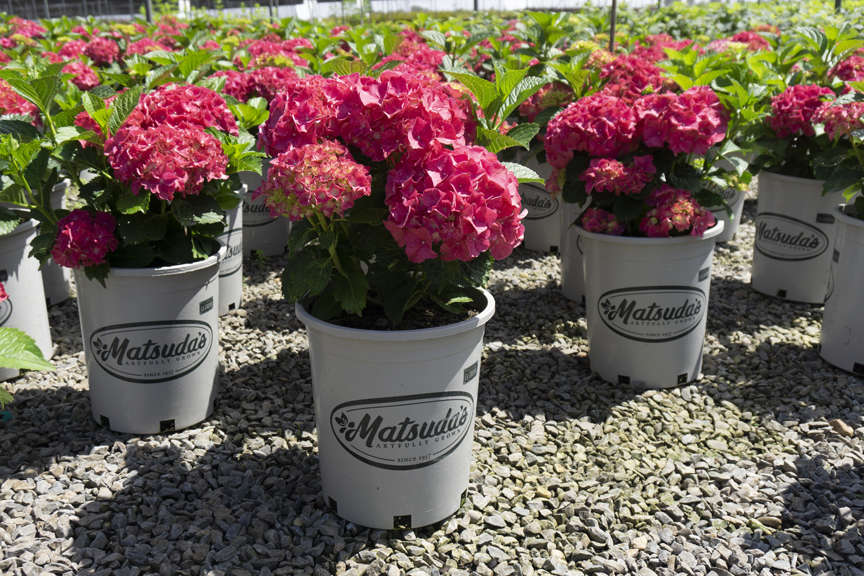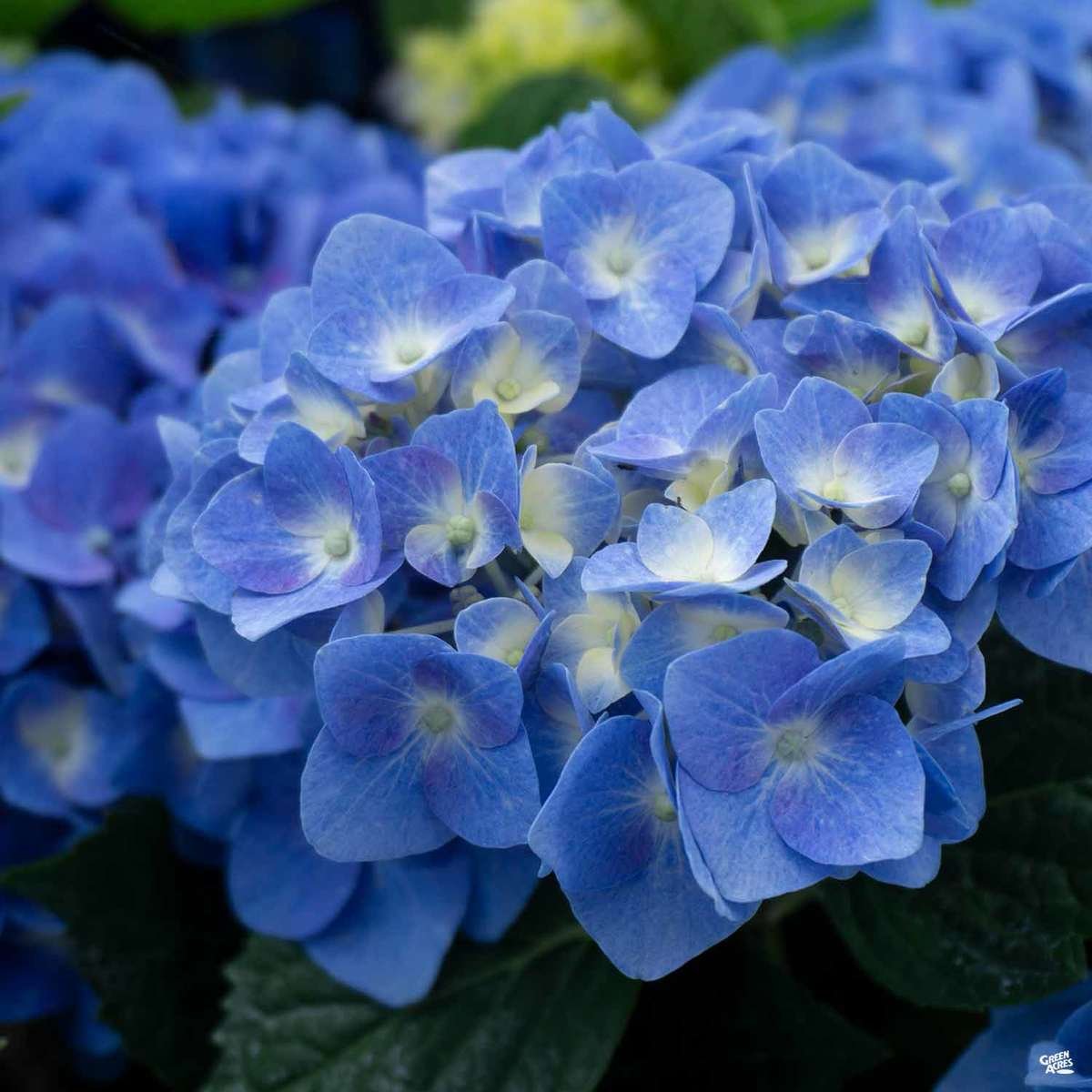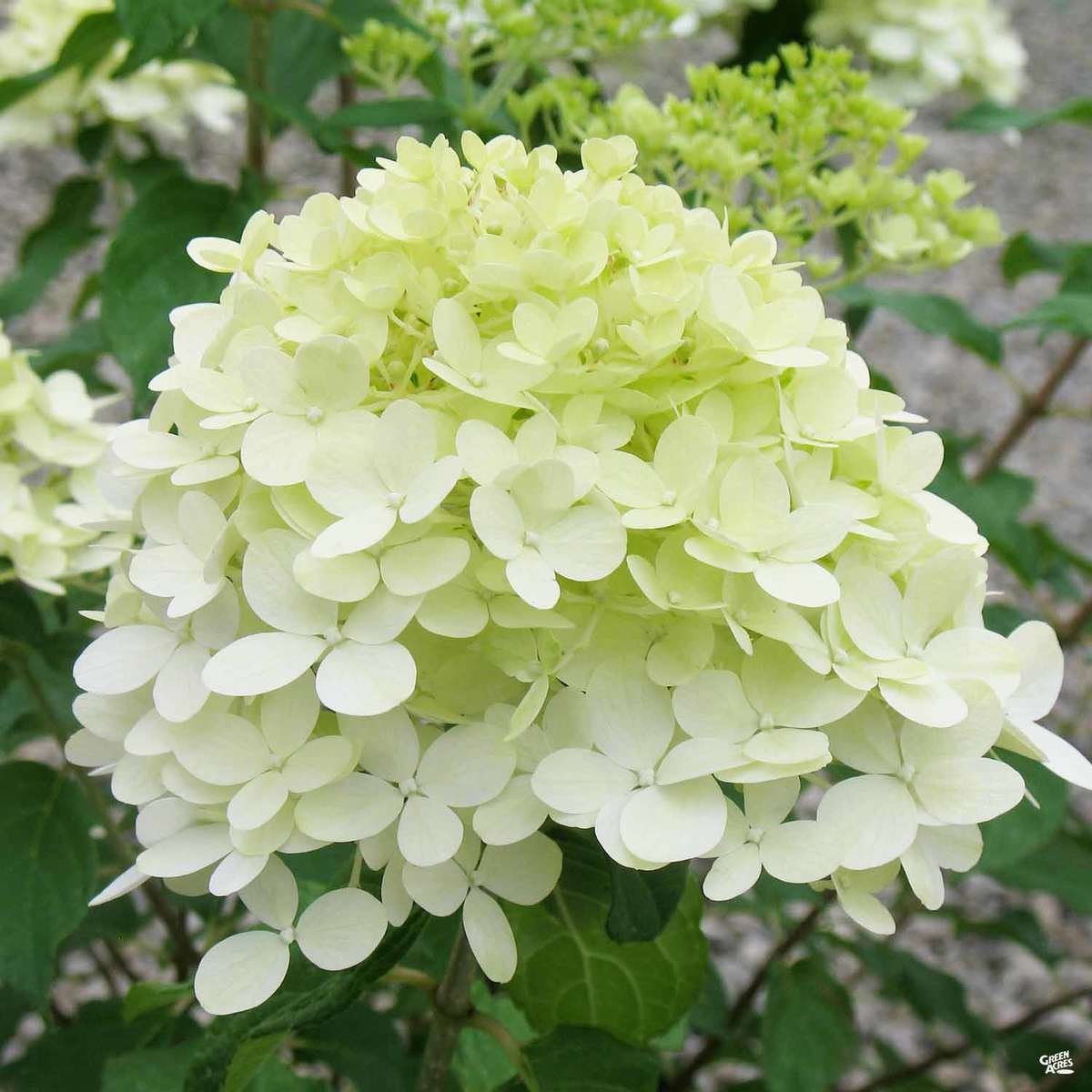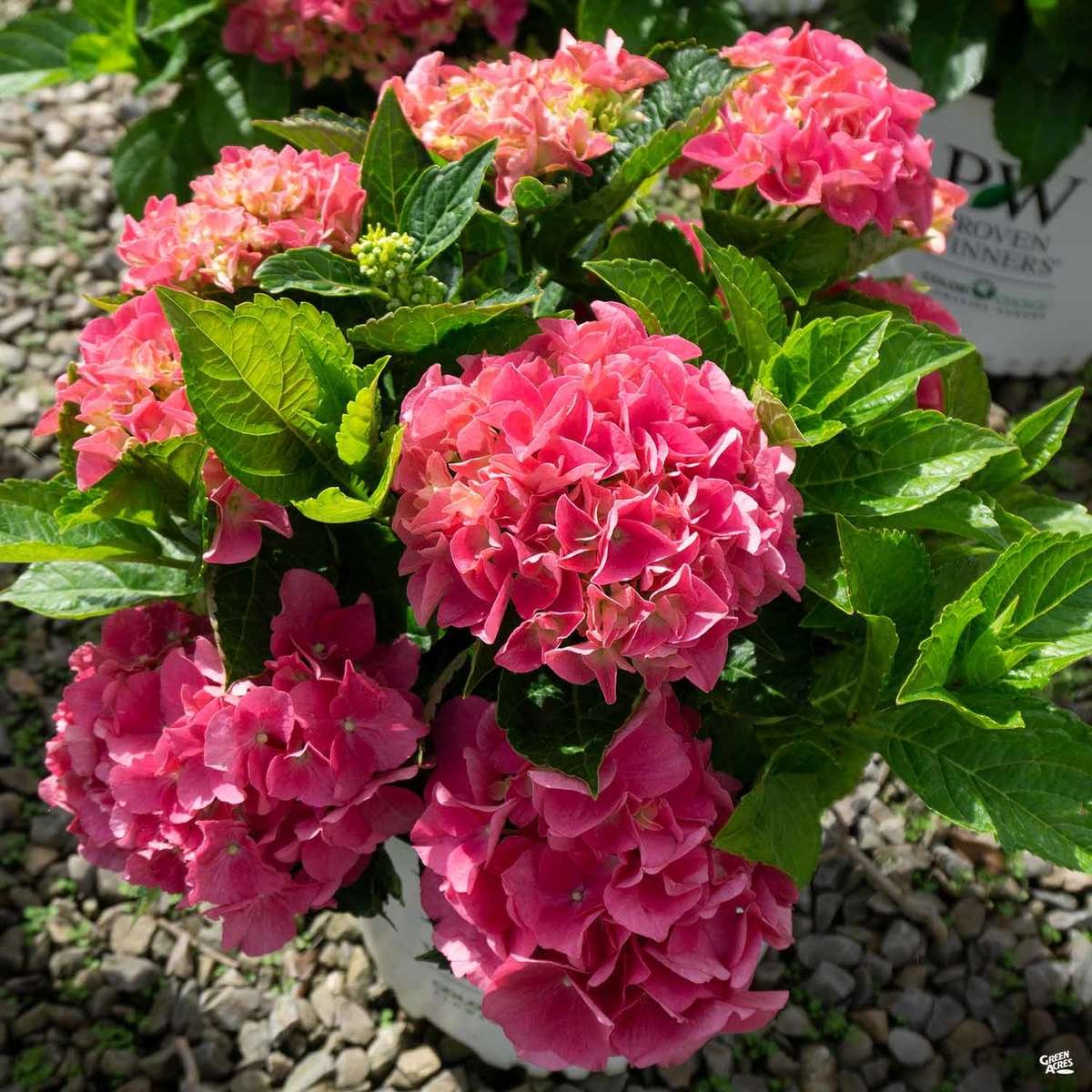
Showstopping Hydrangeas
Showstopping Hydrangeas
What’s not to love about hydrangeas? The blooms are quite diverse in form, size, and color—from lacecap to multi-colored flowers and even reblooming varieties—in beautiful palettes of pink, purple, blue, lime, red, white, and more. If you’ve got a spot in your garden that provides afternoon shade, consider planting a hydrangea. Read on for more information about the types of hydrangeas and how to care for them.
Types of Hydrangeas
- Bigleaf Hydrangea: Large, round flower clusters ("mopheads") and those with flat, lacecap blooms.
- Climbing Hydrangea: Climbing vine that attaches to surfaces by aerial rootlets; lush green foliage and white lacecap blooms.
- Oakleaf Hydrangea: Large leaves that resemble an oak leaf and the flower heads are more cone-shaped. The leaves turn striking shades of red and orange in the fall.
- Mountain Hydrangea: More compact in size, with smaller leaves than the Bigleaf Hydrangeas.
- Panicle Hydrangea: Cone-shape blooms, but does not include Oakleaf varieties. Keep the blooms on through winter for interest; they're really pretty when dried out.
- Smooth Hydrangea: Considered a wild variety. They are generally white, and have much smaller blooms and leaves than those of a Bigleaf varieties. They can get very tall and like full sun.
Planting & Care Tips
- Soil: Plant with E.B. Stone™ Azalea, Camellia & Acid Planting Mix or add as a soil amendment—perfect for these acid-loving plants.
- Sunlight: Hydrangeas need some sun each day—they look and flower best with at least four hours of morning sun, followed by afternoon shade.
- Watering: Provide plenty of water, especially as they are getting established. Hydrangeas have shallow roots, so they dry out quickly. A layer of shredded bark mulch is a useful addition to any hydrangea planting. Note: hydrangeas do not tolerate wet feet.
- Bloom Color: To change the color your hydrangea flowers, feed them in the fall with an amendment that alters pH. Try GreenAll® True Blue for blue, and E.B. Stone™ Naturals Agricultural Lime to go pink.
Pruning Tips
- Knowing whether your hydrangea blooms on old or new growth will help you to make timely pruning for bigger, better blooms.
- Prune Bigleaf and Oakleaf hydrangeas after they’ve finished blooming, but no later than mid-August. They bloom on old wood, and if you prune them late in the year, it may be at the expense of next year’s flowers. These are not the hydrangeas to cut to the ground in fall.
- Prune Panicle and Smooth hydrangeas at any time, other than when the buds are opening. They bloom on new wood from mid-summer to first frost. In late winter or early spring you can cut to about 18”-24” to preserve the shape and get larger blooms.
Resources
Learn more about pruning care for your hydrangeas: Pruning Hydrangeas: Do or Don’t.
Browse the Hydrangea Collection.




